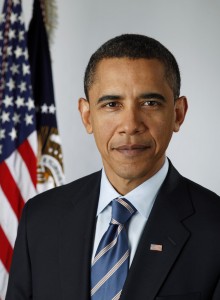 We have all read criticism of President Obama leadership style: too indecisive, seeking consensus for too long, not able to make strong powerful decisions quickly.
We have all read criticism of President Obama leadership style: too indecisive, seeking consensus for too long, not able to make strong powerful decisions quickly.
I disagree with this. Our President has taken relentlessly hard tasks at heart—2009 bail-out—and made swift decisions—BP oil crisis in the Mexican Gulf. I will argue that he offers a new leadership style that deserves our attentive consideration as the modern way of leading.
In line with one of the major themes of his campaign, “We’re All One,” and claim of his rhetoric, “I ask you to believe in yourselves to reform Washington,” President Obama does not exclude nor oppose. He articulates the problems, exposes responsibilities whether among Republicans or Democrats or any group more concerned by their own interests than general interest. He behaves as an inspired referee who reminds us of the rules and calls us on the mistakes we make when playing the game. He also offers needed solutions (a new health care system, a reform of Wall Street, etc.) and gives Congress autonomy of choice beyond polarizing political injunctions. Doing so he reminds us of our citizen’s responsibility.
His way of leadership helps us see—as he himself does see at times as well—that our representatives’ first objective in Washington is not always to represent our interests but to serve their own political agenda.
His leadership invokes a new relationship between government and citizens that is mutually more responsible. In the end, it allows politicians and citizens alike to develop far beyond politics as usual, a much stronger political awareness of the real challenges. It undoubtedly increases chances for real reform to happen. It certainly helped catalyze Occupy Wall Street. And it will undoubtedly help facilitate a productive dialog. In my opinion it is the only way to positively influence and let emerge a natural consensus around the much needed reform of our global financial system.
